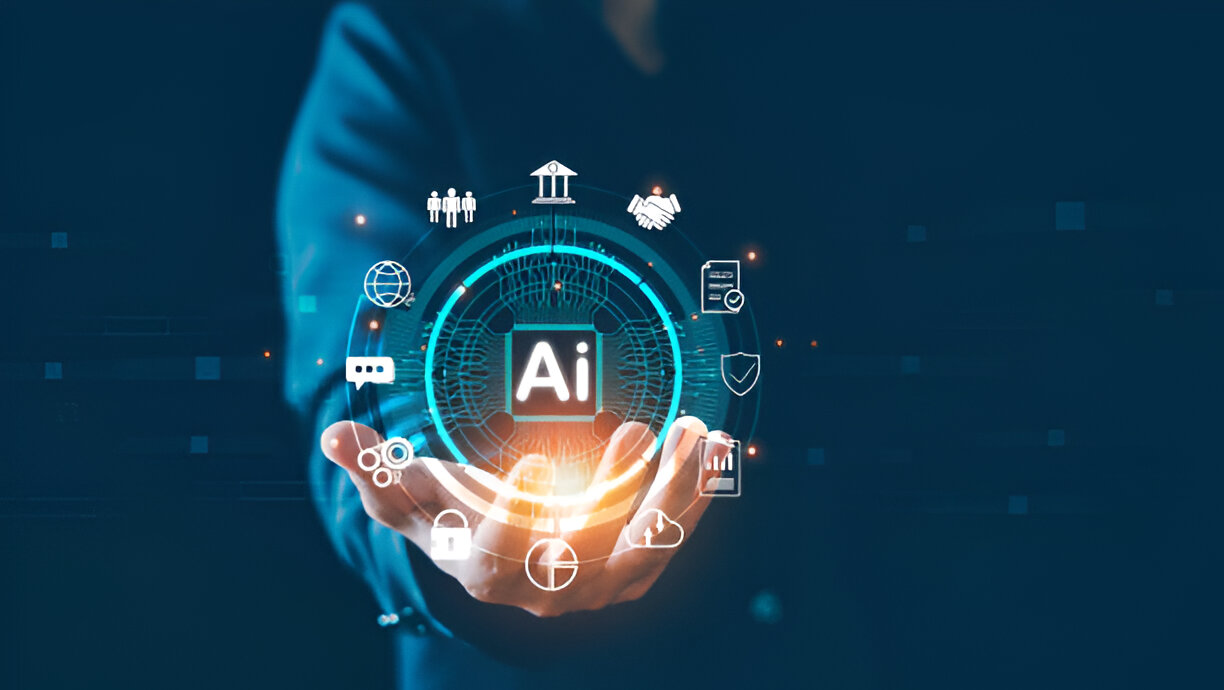Are you struggling to optimize your production lines? In today’s rapidly evolving manufacturing landscape, the challenges are numerous: supply chain disruptions, rising labor costs, and increasing consumer expectations for quality and speed. These issues can be overwhelming, but the good news is that AI in manufacturing offers powerful solutions to drive transformation and efficiency. By adopting AI tools early on, manufacturers can not only overcome these challenges but also pave the way toward innovation and growth. This blog will explore various AI tools, showcase impactful case studies, and provide insights into choosing the right partners in software and mobile app development.
Key AI Tools in Manufacturing
Overview of AI in Manufacturing Applications
AI in manufacturing encompasses a wide range of applications that streamline processes, enhance quality, and enable predictive capabilities. Here are some major areas where AI tools are making significant impacts:
- Predictive Maintenance: Leveraging data from equipment sensors, AI tools can predict when a machine is likely to fail, allowing for timely maintenance that minimizes downtime.
- Quality Control: AI algorithms analyze products in real-time during production, identifying defects and inconsistencies more accurately than human inspectors can.
- Supply Chain Optimization: AI assists in forecasting demand and optimizing inventory levels, thereby reducing waste and increasing responsiveness to market changes.
These applications demonstrate how AI technologies help manufacturers not just to survive but to thrive in a competitive marketplace.
Leading AI Tools in Manufacturing
To effectively utilize AI in manufacturing, several leading tools have emerged that help companies optimize their operations:
- Machine Learning Platforms: Tools like TensorFlow and IBM Watson are designed to build predictive models based on historical data, unlocking insights that drive operational efficiency.
- Robotics Process Automation (RPA): Software like UiPath automates repetitive tasks, from inventory management to data entry, freeing human workers to focus on more complex analyses.
- Data Analytics Software: Platforms such as Tableau and Power BI provide robust data visualization and analysis capabilities, helping manufacturers make informed decisions quickly.
These tools represent just a fraction of the AI solutions available in the market, each promising profound enhancements in efficiency and output.
AI Case Studies Manufacturing – Success Stories
Transformative Results from AI Implementation
The real-world impact of AI in manufacturing is best illustrated through success stories. For example, General Electric (GE) harnessed AI to improve its jet engine manufacturing processes. By employing predictive analytics, GE increased engine availability rates by significant margins—reducing downtime and optimizing repair schedules. Similarly, Siemens utilized AI in its electronics manufacturing, implementing machine learning to enhance yield rates by more than 10% within a year.
These case studies speak to the transformative results that can stem from effectively integrating AI tools into existing manufacturing frameworks. The metrics alone, such as cost savings and increased efficiency, are compelling reasons for any manufacturer to explore these technologies.
Lessons Learned from AI Case Studies Manufacturing
While the success stories are encouraging, there are invaluable lessons to glean from them. One common hurdle faced by companies was resistance to change. Many employees feared that AI would replace their jobs, leading to reluctance in adopting new systems. Successful manufacturers overcame this by investing in training and transparent communication about the benefits of AI.
Another lesson centers on the importance of data quality. Companies that invested in cleaning and refining their data before implementing AI tools typically saw better results. This underscores the importance of a solid data infrastructure as the backbone of effective AI solutions in manufacturing.
Benefits of AI Tools in Manufacturing
Cost Savings and Efficiency Gains
One of the most powerful benefits of integrating AI tools in manufacturing is the significant cost savings and efficiency gains. According to a study by McKinsey, AI can drive a surge of productivity, potentially increasing global GDP by $13 trillion by 2030. For instance, organizations that have deployed AI for predictive maintenance reported a reduction in maintenance costs by as much as 30%. These cost savings often stem from reduced equipment failures and less downtime, allowing factories to run more smoothly.
Moreover, by increasing operational efficiency, manufacturers can respond more rapidly to market demands, adjust production schedules, and meet consumer needs without incurring excess costs.
Enhanced Decision-Making and Innovation
AI is not just about saving costs; it significantly enhances decision-making. With the capability to analyze vast amounts of data in real-time, AI tools yield insights that drive innovation. Manufacturers using advanced data analytics can identify trends and potential disruptions before they occur, allowing for proactive adjustments.
A prime example is Bosch, which implemented AI-powered analytics to enhance its smart manufacturing solutions. The company noticed a marked improvement in innovation, allowing its engineers to focus on developing newer technologies while AI handled routine data analysis. This paradigm of decision-making truly illustrates how AI can free up human capital for innovative pursuits.
Choosing the Right Software Development Company
Criteria for Selecting a Software Development Company
When investing in AI solutions, choosing the right software development company is paramount. Here are key criteria to consider:
- Experience: Look for a company with a proven track record in developing AI-driven applications, particularly in the manufacturing sector.
- Technical Expertise: Ensure that the company possesses the necessary technical skills and knowledge in machine learning, data management, and system integration.
- Portfolio: Review past projects to assess the breadth and depth of their capabilities. Check for case studies that demonstrate successful AI implementations.
By focusing on these criteria, manufacturers can select a partner who aligns with their specific technology and business needs.
Collaborative Approaches with Software Development Company
Effective collaboration with your chosen software development company is crucial for success. Establishing clear communication channels fosters an environment where ideas can be exchanged freely, and issues can be addressed promptly.
It’s also beneficial to clearly define project goals upfront. Both teams should work together to establish timelines, budgets, and performance metrics to ensure alignment. Regular check-ins—whether weekly or bi-weekly—can assure that any roadblocks are identified early on, allowing for swift resolution and adjustments to keep the project on track.
Mobile App Development Company in Manufacturing
Role of Mobile Apps in AI-Driven Manufacturing
Mobile apps play an increasingly vital role in integrating AI tools within manufacturing settings. With mobile applications, manufacturers can access real-time data from AI systems on the go. Here’s how mobile apps enhance AI-driven manufacturing:
- Accessibility: Managers and employees can view critical metrics from anywhere, allowing for swift decision-making.
- Real-Time Data: Mobile apps enable immediate updates concerning production status, inventory levels, and equipment health.
- Remote Monitoring: Employees can monitor equipment from remote locations, further increasing operational flexibility.
These benefits demonstrate that mobile tech is not merely a luxury but a necessity for modern manufacturing environments wanting to leverage AI efficiently.
Examples of Successful Mobile App Development Company Projects
Several mobile app development company initiatives have yielded notable successes within manufacturing. One prominent case is Rockwell Automation, which developed a mobile app that integrates with its factory management systems. The app offers real-time insights into production lines, enabling managers to adjust parameters instantly based on current data.
Another example is Siemens, which collaborated with a mobile app development company to create a workforce management app that improves employee productivity by optimizing task assignments according to real-time workloads. The result was a marked increase in operational efficiency and worker satisfaction.
Future Trends in AI in Manufacturing
Emerging Technologies and Innovations
Emerging trends in AI in manufacturing indicate a bright future characterized by better integration and smarter solutions. For instance, edge computing is becoming critical, allowing AI data processing to occur closer to the source of data generation, thereby reducing latency for real-time reaction.
Additionally, the integration of IoT (Internet of Things) devices with AI will lead to advancements in smart factories. These innovations will streamline operations, optimize workflows, and significantly reduce operational overheads.
Preparing Your Business for the Future of AI
To navigate the future of AI in manufacturing successfully, businesses should take actionable steps to prepare:
- Invest in Technology: Allocate resources for AI research and development, ensuring you stay current with technological advancements.
- Training Programs: Develop training initiatives that empower employees to work effectively alongside AI systems, mitigating fears and resistance.
- Strategic Planning: Establish a comprehensive strategy that incorporates AI into long-term business objectives, aligning it with overall company goals.
Embracing these steps will help businesses not just adapt to the changes but thrive in an AI-driven landscape.
Conclusion
AI tools in manufacturing are revolutionizing productivity, innovation, and operational efficiency. The significant benefits derived from tools like predictive maintenance, quality control, and supply chain optimization are too compelling to ignore. Companies are already experiencing transformative results through the strategic implementation of AI, as evidenced by various case studies. As a trusted authority in AI solutions, Wildnet Edge is committed to assisting manufacturers in navigating this exciting landscape. Contact us today to explore how our AI-first consulting services can elevate your manufacturing processes to new heights.
FAQs
Q1: What are the best AI tools in manufacturing?
Many manufacturers benefit from tools like predictive maintenance software, quality control systems, and supply chain optimization solutions.
Q2: What are some AI case studies in manufacturing?
Case studies often showcase improvements in efficiency, cost savings, and operational adjustments through AI technology.
Q3: How can I find a software development company for AI?
Look for a software development company with experience in AI implementation, a robust portfolio, and positive industry reviews.
Q4: What role does a mobile app development company play in manufacturing?
A mobile app development company can create custom apps that enhance operational efficiency, data access, and communication in manufacturing settings.
Q5: What future trends should manufacturers expect for AI?
Manufacturers should prepare for innovations in edge computing, enhanced IoT integration, and advances in data analytics shaping the future of AI in their field.

Nitin Agarwal is a veteran in custom software development. He is fascinated by how software can turn ideas into real-world solutions. With extensive experience designing scalable and efficient systems, he focuses on creating software that delivers tangible results. Nitin enjoys exploring emerging technologies, taking on challenging projects, and mentoring teams to bring ideas to life. He believes that good software is not just about code; it’s about understanding problems and creating value for users. For him, great software combines thoughtful design, clever engineering, and a clear understanding of the problems it’s meant to solve.
 sales@wildnetedge.com
sales@wildnetedge.com +1 (212) 901 8616
+1 (212) 901 8616 +1 (437) 225-7733
+1 (437) 225-7733















 ChatGPT Development & Enablement
ChatGPT Development & Enablement Hire AI & ChatGPT Experts
Hire AI & ChatGPT Experts ChatGPT Apps by Industry
ChatGPT Apps by Industry ChatGPT Blog
ChatGPT Blog ChatGPT Case study
ChatGPT Case study AI Development Services
AI Development Services Industry AI Solutions
Industry AI Solutions AI Consulting & Research
AI Consulting & Research Automation & Intelligence
Automation & Intelligence















